It was only a couple months ago when locals first started noticing a new building smack on the bank of the River Kwai, just a few hundred meters downstream from the famous bridge that spans it.
Looking like the mashup of a Walgreens and a medium security prison, a shopper-friendly storefront is surrounded by barbed-wire fence. A placard on its front reads: “River Kwea Herbal Therapeutic Center,” Kanchanaburi’s future medical marijuana dispensary. A sign of things to come.
Over the past few years the movement to legalize cannabis in Thailand has hit the accelerator. The now-disbanded political party Future Forward presented a legalization plan to parliament in 2017. The plan stressed positive medical aspects, the goal of decreasing the prison population and an economic estimation showing domestic weed sales could become a US$2.5 billion market, with export and future revenue from tourists being incalculable.
In 2018, hemp and CBD were legalized. In 2019, lawmakers passed amendments to its Narcotics Act allowing medical and scientific use — the first Southeast Asian country to do so — but with a ton of caveats. Though the road to safe, legal sales for recreational purposes seems inevitable, the steps are still hazy and beset with obstacles. Weed remains a category 5 substance in Thailand alongside kratom, a plant in the coffee family with opioid properties and stimulant-like effects.
Read more: Why the New Zealand cannabis vote was late
Chokwan “Kitty” Chopaka, a leading Thai legalization advocate and entrepreneur has pointed out in her podcast Elevated Estate that despite being fluent in Thai, and with a background in law and business, the categorization and steps to domestic legalization “are as clear as mud.”

As physical infrastructure for medical cannabis materializes in Thailand, there are literal signs of things to come in some of the country’s most famous areas. All photos by John McMahon
Cannabis is ‘a way of life’ for Thai people
As in most of southeast Asia, cannabis grows naturally in Thailand like the veritable weed we refer to it as, thanks to the hot, sunny climate punctuated by a long rainy season. It was first made illegal with the foundation of modern Thailand in the mid-1930s.
A law that was little enforced, says Arun “Max” Avery, member of the advocacy group Highland and researcher for the Thai government’s ministry of public health.
“Yes, the law may [say] it’s illegal for the past 41 years, but [Thai people] still see their family or friend making soup or smoking bongs,” he tells Mugglehead. “Cannabis use is a way of life for the Thai people especially mixing it in food and traditional medicine.”
It wasn’t until the 1970s when the U.S. began pressuring Thailand to control the burgeoning drug trade centered in the northeast of the country known as the Golden Triangle where Thailand, Laos and Myanmar converge. At the time, the area became a trafficking hub to feed the heroin habits of young American soldiers returning from the war in Vietnam.
In exchange for billions of dollars in aid and infrastructure, Thailand ramped up a drug war to match America’s — one that focused on the heroin trade but also destroyed the cultivation and export of the legendary Thai stick. The Thai war on drugs kept pace with the U.S.’s resulting in the largest incarceration rate in Asia.
According to Department of Corrections statistics, over 54 per cent of its 290,000 inmate population was incarcerated for drug-related offences as of 2014. A January report by the Bangkok post said 288,648 of a total 374,052 inmates, or 77 per cent, are imprisoned for drugs.
Marijuana for recreational purposes remains a class 5 controlled substance despite the steps towards reform. The penalties for growing, selling or even simple possession of a small amount can lead to serious penalties, including large fines and jail time. Being caught up in a roadside drug test sting, where cars are pulled over at random and passengers tested for meth, ice and marijuana, can lead to thousands of dollars in fines and up to 5 years in jail for possession.
In part it’s these kinds of draconian punishments that advocates want to see ended. But for citizens looking to treat their medical problems with weed or derivatives of it, those fears are over. Official medical legalization passed into law in 2019 with a landslide 160-0 vote in parliament, but Thailand’s complicated bureaucracy and legal system keep details mired in confusion.
Read more: New Jersey: The East Coast cannabis tipping point
There are several paths to gain access to medical marijuana. Each beset with its own burden of certificates and licensing obligations. Both government clinics and private providers are taking unsure first steps together.
The legal climate is even unclear for law enforcement.
“Right now the situation is not perfect. Most of the population is confused and so those who want to use marijuana for cooking or medicine or just for fun are going to buy it on the street,” says police Lt. Ekachi Prevambri.
Meanwhile, in bigger cities illegal clinics have been opening which are providing their own bogus certificates of use. One sure-fire way to tell if a clinic or dispensary is legit or not, according to podcaster Choproka, “is if there is any money exchanged, since any kind of cannabis-based treatment for citizens is free as part of the Thai national medical care system.”
Despite foreign interest, official position is Thailand first
Despite Thai publications — like the Bangkok Post which has run headlines claiming the Green Rush is on and described foreign interest in Thailand’s changing stance on cannabis — the official position is Thailand first. This applies to use as well as development of the sector which should come as no surprise considering the country’s strict work and business restrictions on foreigners.
As for an import and export economy, participation by foreigners is restricted for the first five years, starting Feb. 19, 2019. During this period, state agencies may obtain licences to produce, import or export cannabis. And a private entity may act only jointly with a state agency to get licensed, according to World Law Group.

Under construction today. Open for proverbial business tomorrow.
Some Thai firms with significant resources are already gearing up for international commerce. Thai Cannabis Corporation is headed by president Viroj Sumyai, former two-term head of the International Narcotics Control Board, and staffed with domestic as well as foreign industry expertise.
The legalization process in Thailand is still in its infancy, developing all its facilities at a slow pace. Clarity will develop regarding the cultivation, processing and distribution of legal cannabis — it’s inevitable.
“It will happen. Cannabis use is a way of life for the Thai people,” says advocate Avery. “The question is: ‘When?’ No one can answer that, but I’m looking forward to the time when I can stroll down to the Kanchanaburi dispensary and pick up some of that legendary Thai stick.”

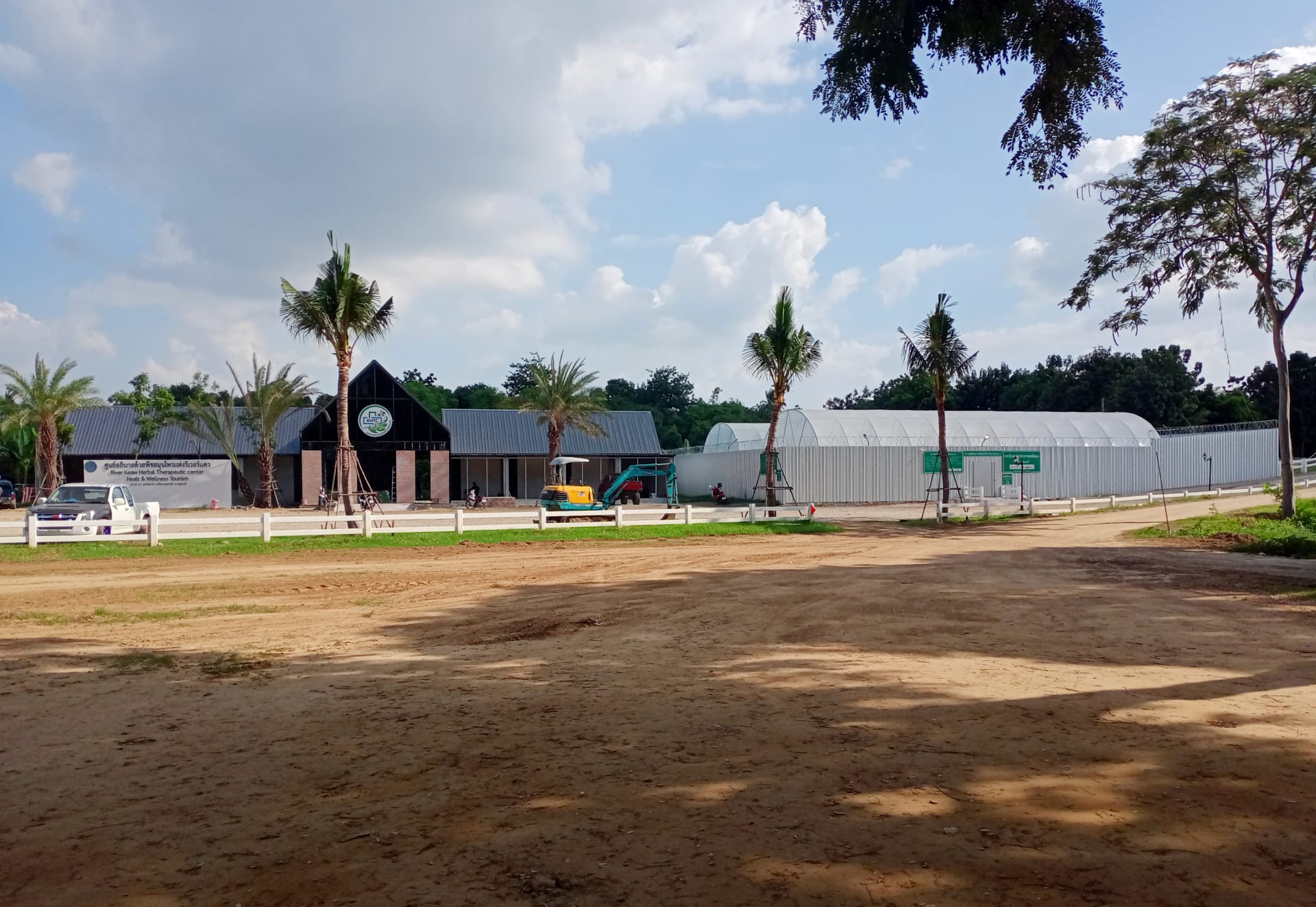





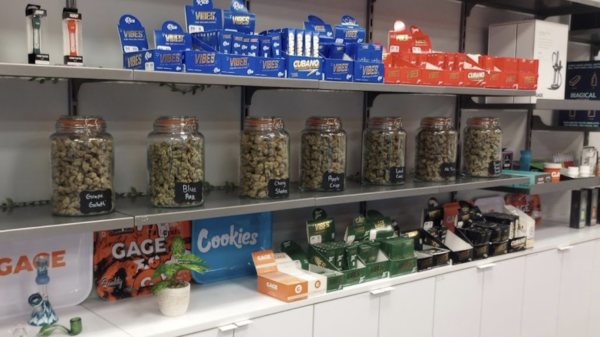
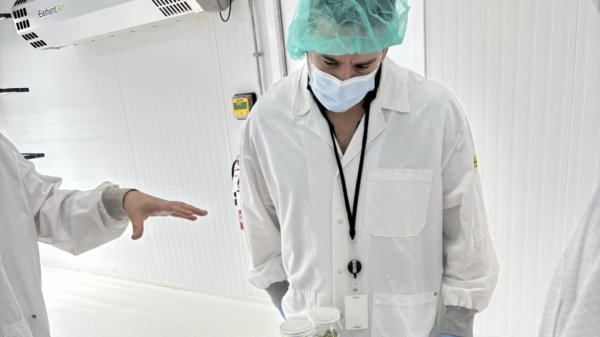

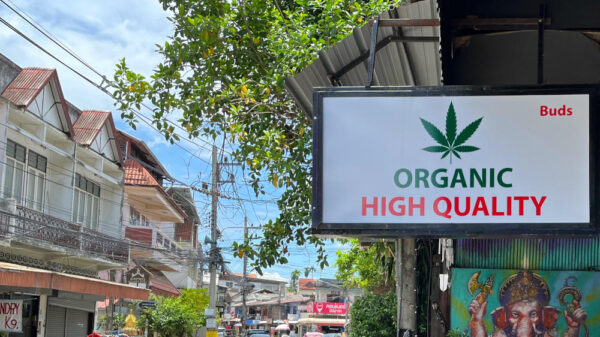

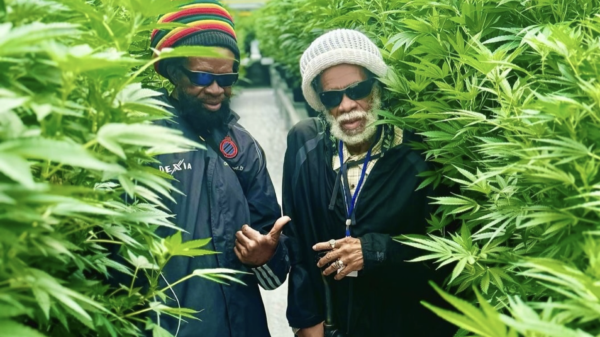

CBD Expert
November 27, 2020 at 12:16 am
Really? It’s gonna be legal in Asia soon too?